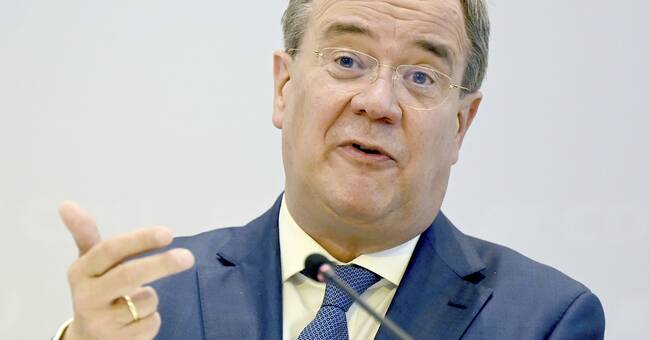- Opinion polls are opinion polls, in the end it is the voters who decide, says Laschet, the man who would take over after Merkel.
One week remains until the federal election, but if the polling institutes are not completely wrong, there are many indications that Merkel's successor will instead be the Social Democrat Olaf Scholz, as his party is by a certain margin ahead of the Christian Democratic Union.
The third and final televised election debate between Laschet, Scholz and the Greens' Annalena Baerbock did not mean a turnaround for the CDU's chancellor candidate.
According to opinion polls immediately after the debate, Scholz is again seen as the best candidate.
Laschet may be pressured by the public opinion situation, but the CDU summit keeps the mood up, as befits a Rhinelander.
In the television debates with Scholz and Baerbock, Laschet has admittedly been on the warpath, but at press conferences and election meetings he appears to be anything but heavy.
Priority policy areas
This week, Laschet presented the "direct program" to be implemented if he is allowed to form a government, and which the Christian Democrats hope will attract back the millions of voters who have left the party since the change of chairman in January.
The plan: tax breaks for families, more camera surveillance and tougher penalties for attacks on blue light personnel, as well as simplified building rules to counteract the housing shortage.
For the most part, proposals that are already included in the election program, but packaged in a new way, in order to emphasize which policy areas are particularly prioritized for Laschet.
The public service channel ARD's commentator saw the program, which is described as a pure short version of the election program, and "anything but the long-awaited 'game changer'".
Positive thinking
The TV channel NTV writes in an article that you can learn a lot about positive thinking from Laschet, who has now played most of his cards - in addition to the live program also the "future team" of experts that the CDU leader presented two weeks ago to highlight the party's broad competence and ability to lead society in all areas.
However, he still has a trump card on hand.
This week he will be joined by Angela Merkel at three campaign meetings, in Stralsund, Munich and Aachen.
Merkel, who usually tops politicians' popularity polls, has so far kept a very low profile in the election campaign, something that has aroused some dissatisfaction among Christian Democrats.
Now she will help Laschet turn the deficit into an election victory.
Sprinted and won
Ahead of the state election in the 18-million state of North Rhine-Westphalia in 2017, the then opposition leader Laschet and the Christian Democrats were clearly behind the Social Democrats with the popular mother of the country Hannelore Kraft at the top.
But Laschet sprinted - and won.
Something that greatly contributed to him winning the presidential race of the CDU in January this year, when he was considered to have the ability to win elections.
Can he repeat the feat from 2017?
We will get the answer on Sunday.

